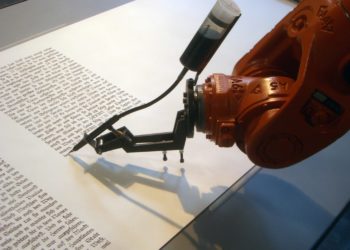What at first seemed like a good security idea (blocking bots from signing up for thousands of accounts), soon morphed into exploiting unpaid labor, as the CAPTCHA technologies we’re all forced to endure became a training mechanism for artificial intelligence (AI) systems. This all became self-reflexive when someone built a system to use AI to answer the questions used to train AI.
Regardless, we all still remain stymied by those blurry blobs of text and unclear pictures that we’re being asked to identify on the part of our AI overlords. In the video below, comedian Stevie Martin perfectly captures what the process feels like.
Discussion
8 Thoughts on "Are you a robot? Can you prove you’re not?"
[on the record statement] Ouch!
Ceci n’est pas un robot:
An acquaintance (not actually a friend) has hired a service in the Philippines to get his marketing into places it would otherwise be unwelcome. All traffic to his website first routes thru a boiler room operation where the workers spend all day proving they aren’t robots. Sounds like a perfectly horrible job, pays pittance, and I think it’s reprehensible that he supports such an “industry.”
I have been getting trapped in Captcha over and over again lately. The bit about the street light behind the building really strikes home.
As a visually impaired person, CAPTCHA has been excluding me for years now. The alternatives – either ‘count how many traffic lights’ or some kind of muffled audio thing – are no better. We’ve talked a lot about accessibility over the years, but until we get a truly accessible web security system, it’s only really talk.
Captcha started as a security system, but now its primary function is to train an AI for autonomous vehicles.
David, I wanted to express my appreciation for your Friday postings. Not to be missed. After someone told me there are always three correct choices (traffic lights, crosswalks, buses), I’ve performed much better on Captcha. Guess like the robots, I’m learning. But I needed a hint.


